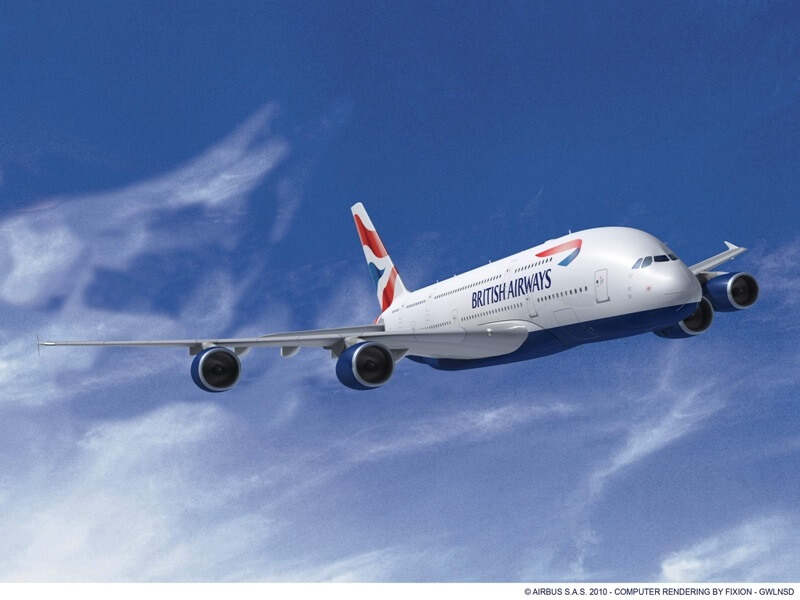British Airways will invest half a billion dollars in reducing carbon dioxide emissions by 50% * This is part of a long-term plan to establish a facility that will turn 500,000 tons of municipal waste into less polluting biojet fuel. An amount that corresponds to the entire fuel consumption of British Airways in its allowance

British Airways has set itself a goal of reducing the amount of carbon dioxide emissions by 50% by 2050 compared to 2005. The "Green Sky" project aims to build a facility that will turn 500,000 tons of municipal waste into 16 million gallons of less polluting biojet fuel, an amount that corresponds to All British Airways fuel consumption at the airport is over. Burning the new fuel will be cleaner than burning oil, will contribute to air quality and produce lower levels of particulate matter. British Airways committed to purchase the "green" fuel from the facility it will build in the next ten years in a deal that was worth 500 million dollars at today's prices.
These efforts are also reflected in the transition of British Airways to planes with modern and less polluting technology. In recent months, British Airways purchased a dozen A380 aircraft that will serve the routes to LA and Hong Kong, instead of the Boeing 747-400 aircraft. The A380 emits about 10% less nitrogen oxides than the 747-400. In addition, the company purchased Dreamliner aircraft, Boeing 787, which will replace many of the Boeing 767-300 aircraft. The emission of oxides in the Boeing 787 is about 45% less than that of the Boeing 300767.
In 2009, British Airways entered into a partnership with Solena, a technology company based on renewable energy in the United States. Together the two companies are developing a project to create sustainable biojet fuel by processing municipal waste using plasma gasification technology. The project aims to establish a biojet gas station on a commercial scale in South East England, which will be the first of its kind in Europe.
British Airways is among the few companies that encourage increased regulation of the aviation industry when it comes to pollution, carbon emissions and encouraging the use of renewable energies. British Airways believes, it was reported, that governments should collectively adopt a framework to reduce emissions in the aviation industry based on carbon trading, which will be applied equally to airlines. This approach is called a global sectoral approach. Starting in 2012, airlines flying within and outside the European Union are required by law to track and report how much carbon dioxide they emit.
Yael Ketan, the commercial director of British Airways in Israel: "British Airways' commitment to the environment is embodied in its business strategy, the company is true to long-term commitments on green issues, and will also reap the rewards for this."

2 תגובות
Blessed is the believer in recycling fuel from municipal waste.
Controversial inventor Andrea Rossi got into serious trouble when he tried to set up a plant in Italy to recycle industrial waste that would be turned into fuel. It turned out in his case that the recycling created an unacceptable toxic environmental pollution, his factory went bankrupt and he was denounced as a criminal in all kinds of crimes.
From Rossi's adventure it can be understood that recycling waste into fuel is a complicated technical matter whose chances of success are completely unclear. British Airways is richer than Andrea Rossi, so if her plan fails, she will bribe enough government officials so that she is not declared an environmental pollution criminal like they did to Rossi. The power of wealth to purify failures and transgressions.
Here is also the place to mention the process of producing fuel from hydrocarbon food, corn and sugar cane I think. Many hopes were placed on this process, but in practice two things turned out: (1) the process caused a reduction in the amount of global food and global food became more expensive as a result, (2) the process probably did not reduce the emission of greenhouse gases since the distillation of fuel from food caused the emission of greenhouse gases no less than direct burning of fuel As a result of the two things listed above, most of the venture of producing fuel from carbohydrate foods has stopped (at least in countries where the government must be attentive to the citizens of the country it controls).
We will wait and see if the experience of British Airways is useful (it is only useful after it is actually successful and will not be financed by taxpayers' money to hide its unprofitability).